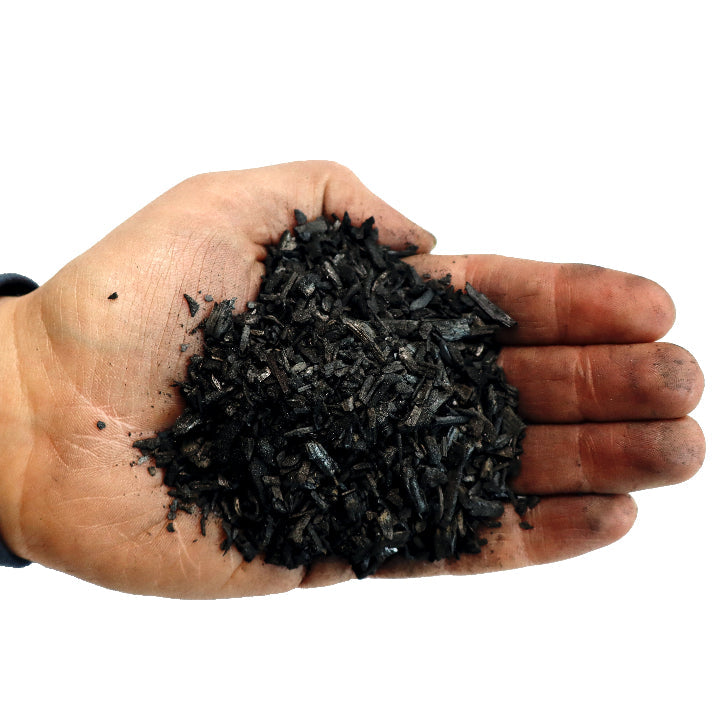Is your garden ready for drought, soil fatigue, or that next big watering restriction?
Carlos GutierrezShare

Whether you're growing veggies, houseplants, dealing with your lawn, or managing a greenhouse, Biochar can be your secret tool to boost resilience, plant health, and sustainability, all while saving water.
🌟 What Is Biochar?
Biochar is charcoal like soil amendment made by heating plant material like wood with limited oxygen. It acts like a sponge, holding water and nutrients, improving soil structure, and supporting beneficial microbes after being “charged” with compost or manure.
🔥 Top 5 Benefits for Growers and Gardener
-
Enhances Water Retention
According to Ebert’s Greenhouse blog, biochar’s tiny pores “hold onto water and slowly release it as plants need it,” reducing irrigation needs. -
Improves Soil Structure and Aeration
The Nursery Landscape Expo features Dr. Amit Dhingra from Texas A&M: “biochar enhances soil structure and nutrient retention,” making soil fluffier and roots happier. -
Reduces Nutrient Loss, Boosts Fertility
Farmonaut reports that biochar can reduce greenhouse gas emissions by up to 50% by locking in nutrients instead of letting fertilizers wash away. -
Supports Microbial Life
Charterra explains biochar offers a “beneficial microbe habitat,” fostering soil health and plant vitality. -
Locks Away Carbon Long-Term
Biochar stores carbon in soil for hundreds to thousands of years, turning your garden into a carbon sink.
👥 What the Experts Say
-
Dr. Amit Dhingra (Texas A&M) told the Nursery Landscape Expo audience that biochar is “essential for enhancing soil structure, nutrient retention, and water efficiency.”
-
Mr. Paul May, speaking at the Spirit of the Woods Garden Club in May 2025, emphasized mixing “10% biochar into compost improves soil fertility and water retention.”
-
India’s Minister Nitin Gadkari highlighted in May 2025 that biochar, dubbed “black gold”, helped boost sugarcane yields past 100 tons/acre in Maharashtra, while cutting input costs.
🛠️ Easy Guide to Using Biochar
-
Get biochar
-
Charge it by mixing in compost, manure, or worm castings for at least a week. If you use liquid fertilizer or compost tea the charging process is faster, no more than 2 days.
-
Mix 5–10% into your soil or potting mix, blending with compost or fertilizer to activate its benefits.
-
Observe and adjust. Effects grow stronger over time, so build it into your soil strategy.
🌱 Why Growers Should Care
With biochar, you’ll see:
-
Resilient, drought-ready plants
-
Less watering and fertilizer use
-
Stronger soil structure and microbial life
-
Long-term carbon benefits for the climate
In a world where every drop of water and kilogram of soil health matters, biochar stands out as a simple, natural solution with powerful impact. Whether you're a home gardener, a greenhouse grower, or managing larger plots, adding biochar to your soil isn’t just smart, it’s sustainable. With benefits that last for decades, this ancient soil enhancer is more relevant than ever. Start small, stay consistent, and watch your garden thrive like never before.
